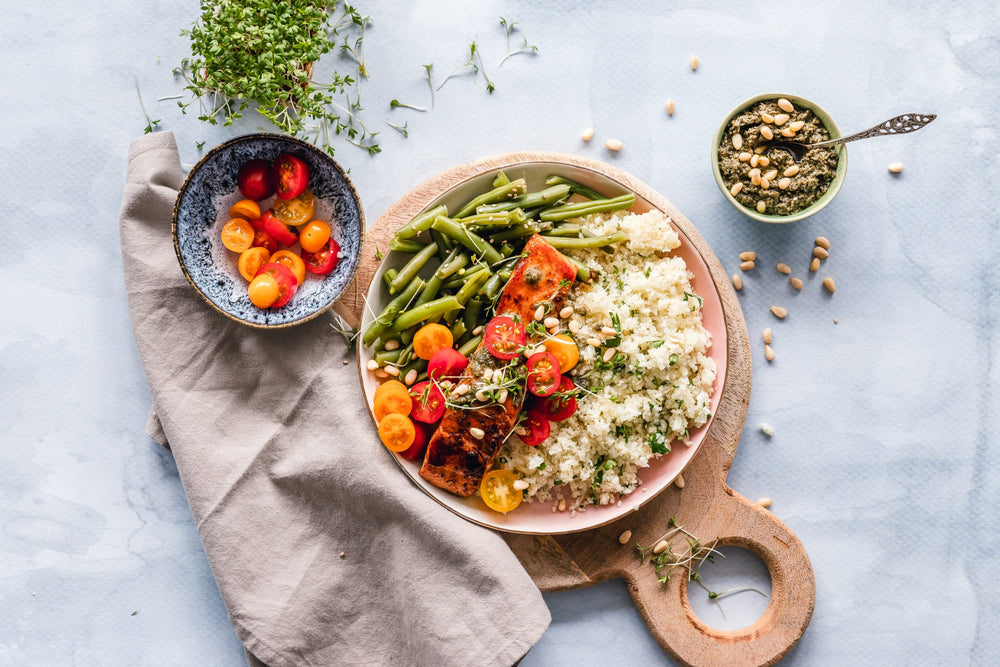
7 Anti-Inflammatory Foods to Incorporate into Your Diet Now
Anti-inflammatory diets are becoming more and more popular, as a way to fight chronic inflammation in the body. Here's the caveat: some inflammation can actually be a good thing; in fact, it's a natural bodily response to fight off foreign invaders i.e. a virus or chemical substance. And when you're injured, the inflammatory response can even help your body heal!
It's when inflammation persists day in and day out that it becomes more of an issue. In fact, chronic inflammation has been linked to a slew of diseases like Cancer, Alzheimer's, Diabetes, and Inflammatory Bowel Disease (IBD).
The good news is there are many things you can do to help naturally fight off inflammation in the body, and it all starts with your diet. Before we get into what you can pile onto your plate, you'll want to limit foods that may cause inflammation. (Think: added sugar, processed foods, alcohol, and refined carbs.)
Now that you‚ve cleaned out your cabinets and fridge, here are some inflammation-fighting superfoods you can add to your diet now.
7 Anti-Inflammatory Foods to Incorporate into Your Diet Now
- Berries
- Cruciferous Vegetables
- Green Tea
- Turmeric
- Salmon
- Mushroom
- Cocoa
1. Berries
We know berries are rich in antioxidants, and studies also support their potential to have anti-inflammatory properties to boot. We love blending them into our smoothies and smoothie bowls, adding to our oatmeal or yogurt, or eating solo as a naturally sweet afternoon pick-me-up.
2. Cruciferous Vegetables
Perhaps they weren't your favorite veggie as a kid, but cruciferous vegetables like broccoli, cauliflower, and Brussels sprouts pack major health benefits.
In fact, studies show that upping your intake of these super-veggies (like broccoli, in particular) has been correlated with anti-inflammatory effects. It's best to eat them raw to reap maximum benefits, but we also love lightly roasting them as a healthy dinner side.
3. Green Tea
If you‚re trying to cut back on your coffee addiction, you‚re in luck. Its zen cousin, green tea, has loads of health benefits according to recent research ‚ including its anti-inflammatory effects. This is especially great news for those living with inflammatory disease! We love sipping a cup of green tea to start your day on an energizing note.
4. Turmeric
Turmeric ‚ the spice found in curry ‚ isn‚t just a popular seasoning used in your favorite Indian dishes! Thanks to its unique compound curcumin, turmeric can be a powerful anti-inflammatory and antioxidant boost.
Use it to spice up your cooking or enjoy a cup of turmeric tea. Pro tip: Rather than ingesting curcumin alone, be sure to add some black pepper to activate its bioavailability!
5. Salmon
Bring on the salmon avocado sushi rolls! According to research, Omega-3 rich foods like salmon can help reduce cardiovascular events and help fight against inflammation.
Other foods rich in Omega 3 fatty acids include walnuts, flaxseeds, and chia seeds (the perfect accompaniment to your breakfast like this Pineapple Coconut Smoothie)!
6. Mushrooms
Mushrooms have been touted for their medicinal properties for centuries ‚ and new research has confirmed their anti-inflammatory effects.
Choose a variety like shiitake, reishi, and oyster, and add them to your salads, stir-fries or rice bowls. Nowadays, you can even find these superstars hidden in your morning cup of java with brands like Four Sigmatic.
7. Cocoa
Chocolate-lovers, rejoice; we have good news for you! The cocoa found in pure chocolate is rich in antioxidants, and recent studies have found it may also have anti-inflammatory effects. Win, win! Be sure to enjoy your chocolate in moderation, and choose the real deal ‚ made with a higher concentration of cocoa and minimal added sugars.
DISCLAIMER: This information is not intended as a substitute for the advice provided by a competent health care professional. You should not use this information in diagnosing or treating a health problem. No claim or opinion in this blog is intended to be, nor should be construed to be medical advice. If you are now taking any drugs, prescribed or not, or have a medical condition, please consult a competent physician who is aware of herb/drug interactions before taking any herbal supplements. The information presented herein has not been evaluated by the FDA or the Department of Health and is not intended to diagnose, prevent, cure, mitigate or treat any disease or illness.




